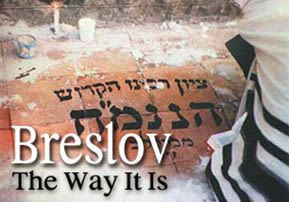
Breslov – The Way It Is
Rebbe Nachman once said: "At the beginning of every day, I surrender my every movement to God, as well as those of my children and all those who depend on me...

Le‘ilui nishmat Leib ben Yitzchak Ya’akov Sears, a”h – Yartzeit: 30 Shevat, Rosh Chodesh Adar
Le'ilui nishmat Yosef ben Shmuel Zeitlin, a"h –
Yartzeit: 18 Menachem Av
We continue with our new series of minhagim and hanhagot tovot of Breslov. We invite you to peruse our previous entries by accessing our archives.
Awakening From Sleep / Modeh Ani
Rebbe Nachman of Breslov taught: "As soon as one awakens from sleep, as soon as he opens his eyes, he should remind himself of the World to Come" (Likkutei Moharan I, 54).
* * *
Reb Elazar Kenig explained this is in connection with "Modeh Ani," which one utters immediately upon awakening: "One should say ‘Modeh Ani’ every morning b'simchah, with joy, knowing that whatever one experiences in the course of the day is set up by Divine Providence to bring him to the ultimate goal, which is called the 'World to Come.' This idea is also implied by the ‘Elokai neshamah’ prayer that one recites soon afterward: ‘My God, the soul that You have placed within me is pure. You created it… and You are destined to remove it from me, and to return it to me in time to come (le‘atid lavo).’ Thus, this prayer itself is a reminder of the World to Come. There, everything attains shleimut − nothing is lacking, everything is good."
* * *
Rebbe Nachman once said: "At the beginning of every day, I surrender my every movement to God, as well as those of my children and all those who depend on me, beseeching that all of my actions be in keeping with God's will; and this is very good. Thus, I have no worries as to whether or not things go right, because I am completely dependent upon God. If He has something else in mind, that is what I, too, desire, since I have already asked that I only perform His will" (Sichot ha-Ran 2; ibid. 238, end).
Tikkun Chatzot
Rebbe Nachman greatly stressed the importance of reciting Tikkun Chatzot. He ruled that Chatzot begins six hours (sixty-minute hours, not sha'ot zemaniyot) after nightfall (tzet ha-kokhavim), and lasts for two hours (Likkutei Moharan I, 149; ibid. II, 67, 101; Sichot ha-Ran 301; cf. Magen Avraham, Orach Chaim 1:4, citing the Zohar, Vayakhel; ibid. 233:1; Machatzit ha-Shekel on Magen Avraham, ad loc.; Rabbi Chaim Vital, Pri Eitz Chaim, Sha'ar Tikkun Chatzot, 4; Mishnat Chassidim, Masechtat Chatzot, 1:1; Rabbi Nosson Hanover, Sha'arei Tzion, Sha'ar 1, citing Eitz Chaim, Drush 6, Drushei ha-Laylah; Siddur ARI Kol Yaakov, 4a; Tzava'at ha-Rivash 16, concerning the Baal Shem Tov; Siddur ARI Rav Shabsai, 5a; Siddur ARI Rav Asher, 9a; similarly Bekhor Shor, Berakhot, 3a; Teshuvot Chatam Sofer, Orach Chaim, no. 199; et al.).
* * *
Rabbi Shmuel Moshe Kramer pointed out that many seforim say that this is the time lechatchila, but bedi’eved it can still be said until alot ha-shachar, sunrise. This might explain how Rebbe Nachman could tell his follower, Reb Dov, who suffered from headaches as a result of breaking his sleep, that his “personal” chatzot was 3:00 a.m. Reb Gedaliah wrote in a letter that chatzot is unrelated to sleeping, and if one is still awake at that time, he should recite Tikkun Chatzot (Heard from Rabbi Dovid Shapiro).
* * *
Reb Noson explains: The first half of the night corresponds to questions that emanate from the Chalal ha-Panui (Vacant Space), and therefore cannot be rectified with da’at, but only with emunah. Since sleep regenerates emunah, we should sleep during those hours. The second half of the night, from chatzot and on, corresponds to those questions that emanate from the shevirah, and therefore can be rectified with da’at. Therefore, during these hours we engage in Tikkun Chatzot and learning Torah (Likkutei Halakhot, Hashkomat ha-Boker 3:4, based on Likkutei Moharan I, 62).
* * *
Rebbe Nachman taught: "While reciting Tikkun Chatzot, one is able to pour out one's heart to God, just as during hitbodedut. One is not only reciting this lament over the past, but even more fundamentally over what one is going through in the present. When one approaches it in this way, one can express everything in one's heart through the words of Tikkun Chatzot" (Likkutei Moharan II, 101).
* * *
Ideally, one should recite all the Tehillim (Psalms) and Kinnot (Laments) of Tikkun Chatzot. However, sometimes one cannot do so. Therefore, Reb Gedaliah advised those of his talmidim who did not have the strength to remain awake to say four Psalms of Tikkun Chatzot. (Presumably this means two Tikkun Rochel and two from Tikkun Leah.) If this proves too difficult, one should say at least two Psalms (Heard from Rabbi Chaim Man and Rabbi Eliezer Trenk. The ARI did not recite the kinnot, most of which were written or became popularized after his passing; see Rabbi Chaim Vital, Sha’ar ha-Kavannot, Drushei ha-Laylah, Drush Tikkun Chatzot. Therefore, some omit them. For a more comprehensive discussion of Tikkun Chatzot in English, see Rabbi Avraham Greenbaum, The Sweetest Hour [Breslov Research Institute, 1993]; in Hebrew, see Rabbi Binyamin Ze'ev Halevi Shisha, Tikkun Chatzot Hamevu'ar [Jerusalem 2001]).
* * *
Reb Elazar Kenig added that even if one cannot say Tikkun Chatzot every night, one should try to do so once or twice a week. This, too, is good, because one is keeping a kesher with the avodah, Divine service, of chatzot, and not abandoning it altogether.
* * *
On days when there is no Tachanun, including Shabbat, Yom Tov, Rosh Chodesh, etc., only the second half of Tikkun Chatzot (Tikkun Leah) is said, omitting Psalm 20 ("Y'anchah") and Psalm 51 ("Lamenatze'ach Mizmor le-Dovid") (Sha'arei Tzion, Sha'ar 1, citing ARI zal).
* * *
It is not customary for women to recite Tikkun Chatzot. However, they are permitted to do so, if they wish. In fact, the author of Kaf ha-Chaim declares: "A woman who is God-fearing and wishes to recite Tikkun Chatzot will be blessed" (Cf. Rabbi Chaim Vital, Sha'ar ha-Kavannot, 54a, in the name of the ARI zal; Rabbi Yaakov Chaim Sofer, Kaf ha-Chaim, Hanhagat ha-Adam ba-Boker 15).
To be continued…
(With permission from The Breslov Center for Spirituality and Inner Growth http://www.nachalnovea.com/breslovcenter)





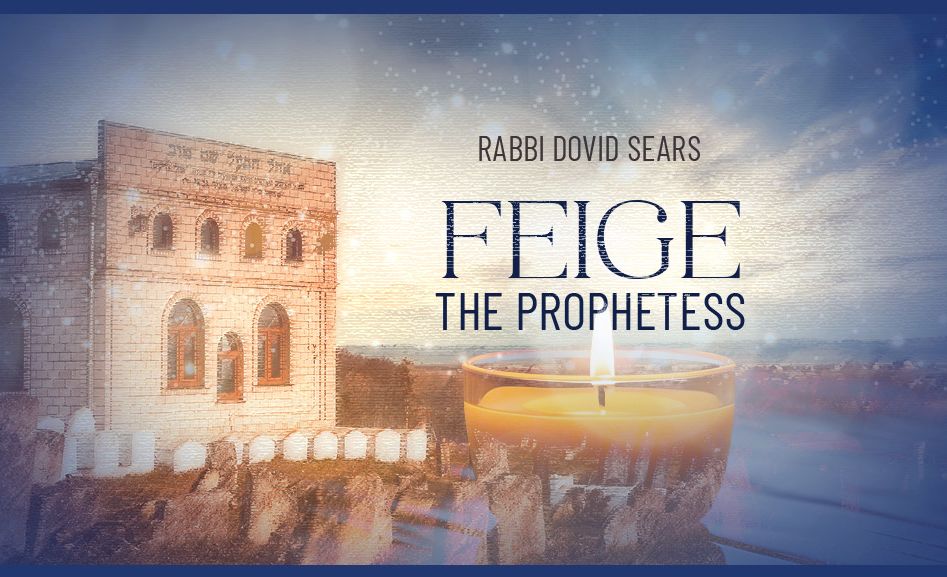


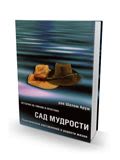
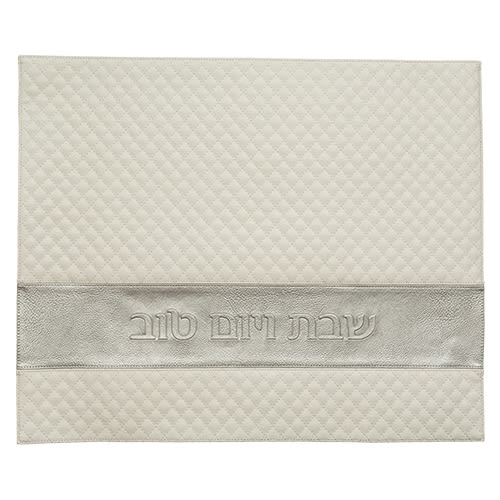


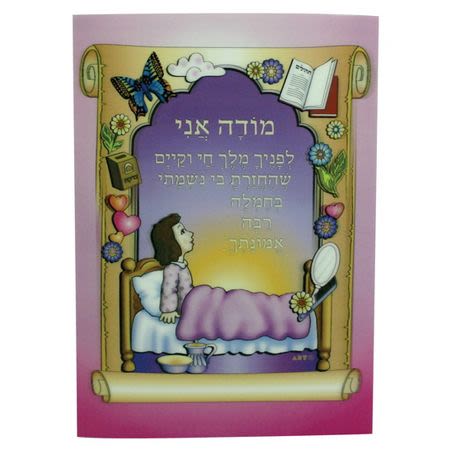
Tell us what you think!
Thank you for your comment!
It will be published after approval by the Editor.